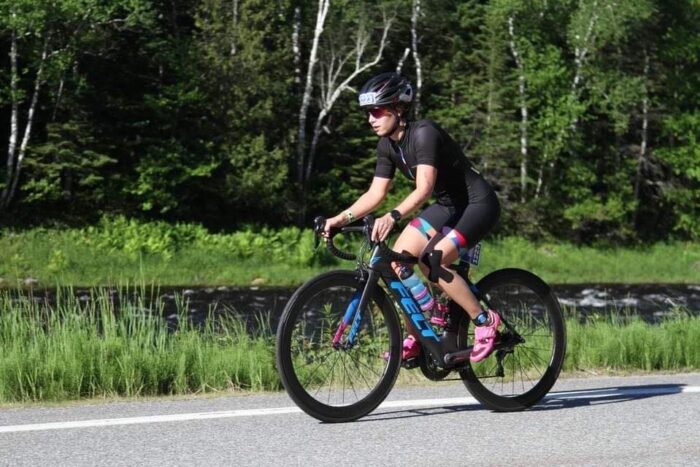6 tips to prepare for your first half-Ironman
Have a minimum of experience
It’s important to choose the right distance for your first triathlon. I’m not telling you that doing a Half-IronMan as your first race is impossible, but let’s just say it’s not the ideal scenario. I advise you to register for a triathlon first, whether it’s the sprint or Olympic distance. This will allow you to be better prepared and avoid many of the mistakes that beginners sometimes make on their first triathlon. What’s more, preparing for a half-Ironman involves a lot of stress, so it’s best to be used to this kind of event.
Surround yourself well
Preparation is the key to a successful Half Ironman. Having a triathlon coach to guide you will, among other things, ensure that you’re ready on the day without over-training. There are many triathlon clubs with different packages to suit all needs! Having a personalized plan adapted to your schedule is also an important part of your preparation. If this option is too expensive for you, there are always IRONMAN training plans available online.

Listen to your body
When you take on that big challenge, you often want to do a lot, even too much, to make sure you make it to the finish line on race day. Unfortunately, this is often a trap that many people fall into! The problem with doing too much too fast is that you put yourself at risk of injury or over-training. Progression is the key, and you need to focus on the long term rather than putting all your energy into your preparation right from the start. I suggest you be patient and regular!
Knowing how to link disciplines
To achieve this, you need to be able to link up sports, mainly bike-racing, as this is the most difficult and decisive for your performance. Bricks-type training should therefore be prioritized during your preparation. The intensity doesn’t have to be very high, as the aim is to get your legs used to cycling after running. Physiologically, moving from a non-weight-bearing sport (cycling) to a standing sport (running) is not trivial.

Consider the impact on your daily balance
You need to consider how this new training load can upset your habits and possibly make it more difficult to reconcile your family and professional life. Don’t minimize the time invested in preparing for an event like this; it’s not just a personal matter, it directly involves your family and everyone around you. It’s sometimes difficult to maintain a balance between triathlon and personal life. So take time to consider this before embarking on your adventure.
Be prepared for any situation
First of all, don’t neglect open-water training with your Wet suit. Ideally, you should swim in the same environment as the triathlon you’ve registered for at least once before the race. Swimming in open water has nothing to do with swimming in a pool, which is why you need to experiment in open water before the triathlon.
Working on your transitions is also a must! Switching from swimming to cycling or from cycling to running doesn’t come naturally. Practice it before D-day!

